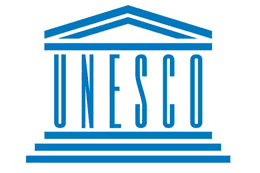The Tertiary Education Trust Fund (TETFund) has raised fresh concerns over the ongoing electricity crisis plaguing Nigerian tertiary institutions, particularly universities, due to the sharp increase in energy tariffs.
The agency has, however, pledged to intervene and alleviate the burden on these institutions.
TETFund’s Executive Secretary, Mr. Sonny Echono, made this commitment over the weekend in Lagos at an award ceremony organized by New Telegraph Newspapers, where the agency was honored as the Most Improved Government Agency of the Year 2024.
Echono noted that the rising cost of electricity has significantly impacted Nigerian universities, hampering effective teaching and learning. He emphasized that TETFund’s planned intervention aims to reduce the financial strain caused by high energy costs. This initiative aligns with the federal government’s efforts to install solar energy panels in selected tertiary institutions to enhance energy sustainability.
Several public universities, including the University of Lagos, the University of Ibadan, and Ahmadu Bello University, have been classified as “Band A” users by electricity distribution companies, resulting in monthly power bills exceeding ₦300 million—an unsustainable cost for these institutions.
Expressing optimism about the agency’s plans for the year, Echono assured that 2025 would be a pivotal year for TETFund’s intervention programs.
“This award is dedicated to Mr. President and the Minister of Education, who have continually encouraged us to ensure the judicious use of allocated resources,” he stated. “We are tailoring our interventions to meet the specific needs of our beneficiary institutions, particularly in addressing electricity challenges. Many institutions struggle to pay energy bills, so we will collaborate with the federal government’s solar power initiative to provide sustainable energy solutions.”
Beyond electricity, Echono outlined other areas of focus for TETFund, including improving teaching and learning conditions, upgrading student hostels, enhancing research capabilities, and ensuring that Nigerian universities have world-class research centers.
“Our goal is to create centers of excellence so that research samples no longer have to be sent abroad. We are committed to improving the global rankings of our institutions and ensuring that our students are internationally competitive,” he added.
When asked whether TETFund is overwhelmed by the government’s continuous establishment of new tertiary institutions, Echono defended the move, citing the growing number of admission seekers.
“With over two million candidates applying for university admission yearly, and only 600,000 to 700,000 securing placement, there is a clear need for more higher institutions,” he explained. “People are paying their taxes, our resources are increasing, and we are using them wisely to fulfill our mandate.”
Echono reaffirmed TETFund’s commitment to sustaining its interventions and ensuring that Nigerian tertiary institutions have the resources needed to thrive.





